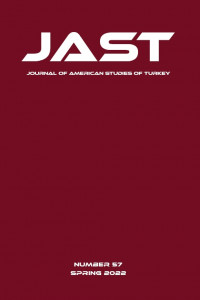Abstract
Many of Jack Kerouac’s road novels stage a retreat into the
wild that typifies an irrepressible urge towards natural phenomena, an
urge which closely resonates with the works of Henry David Thoreau
a century earlier. In Kerouac’s Big Sur (1962) and in Thoreau’s Walden
(1854), nature is envisaged as a safe haven from the sociohistorical
forces of oppression that shape modern existence, but also – more
romantically – as a gateway to spiritual insights that affords the
possibility for transcendence. Highlighting a series of analogies on the
narrative, aesthetic and ontological planes between the two novels, the
article goes on to show that this tropism towards nature simultaneously
involves a process of disengagement from the cultural predicament
of modern America; for Thoreau this meant the industrial revolution,
for Kerouac the post-war quagmire. Reinterpreted as a romantic form
of the revolt, this paper argues that this disengagement promotes a
deliberate alienation from the social world that blurs the line between
the quest for transcendence and the solipsistic condition.
References
- Barbour, Brian M., editor. American Transcendentalism: An Anthology of Criticism. University of Notre Dame Press, 1973.
- Bowers, David. “Democratic Vistas,” American Transcendentalism: An Anthology of Criticism. Ed. Brian M. Barbour, pp. 9-21.
- Camus, Albert. The Myth of Sisyphus [1942], Trans. Justin O’Brien. Penguin Books, 1975.
- Finkelstein, Sidney Walter. Existentialism and Alienation in American Literature. International Publishers, 1965.
- Kerouac, Jack. Big Sur [1962]. Flamingo, 2001.xxxxxxxxxxxxxxxxxxxxxxxxxxxxxxxxxxxx
- McIntosh, James. Thoreau as Romantic Naturalist: His Shifting Stance towards Nature. Cornell University Press, 1974.
- Miller, Perry, editor. The American Transcendentalists: Their Prose and Poetry. Doubleday Anchor Books, 1957.
- Robinson, David M. Natural Life: Thoreau’s Worldly Transcendentalism. Cornell University Press, 2004. Sartre, Jean-Paul. “Existentialism & Humanism” [1946], Trans. Philip Mairet, 3rd ed. Methuen, 2007.
- Thoreau, Henry David. “Life Without Principle” [1863], The American Transcendentalists: Their Prose and Poetry. Ed. Perry Miller, pp. 308-29.
- ---. Walden; or, Life in the Woods [1854], Oxford World’s Classics, 3rd ed. Oxford University Press, 2008.
- Tytell, John. Naked Angels: The Lives and Literature of the Beat Generation. McGraw-Hill, 1976.
Details
| Primary Language | English |
|---|---|
| Subjects | North American Language, Literature and Culture |
| Journal Section | Research Article |
| Authors | |
| Publication Date | June 14, 2023 |
| Published in Issue | Year 2022 Issue: 57 |
JAST - Journal of American Studies of Turkey

